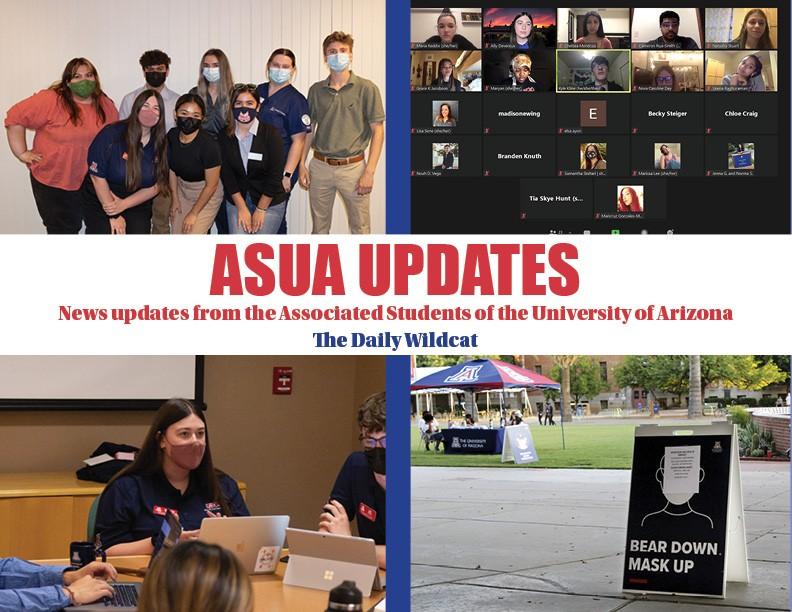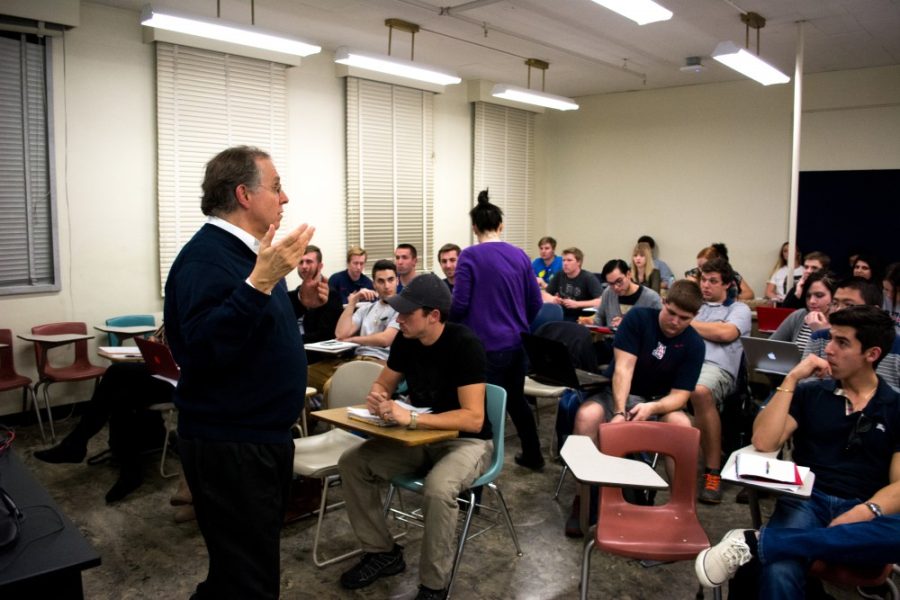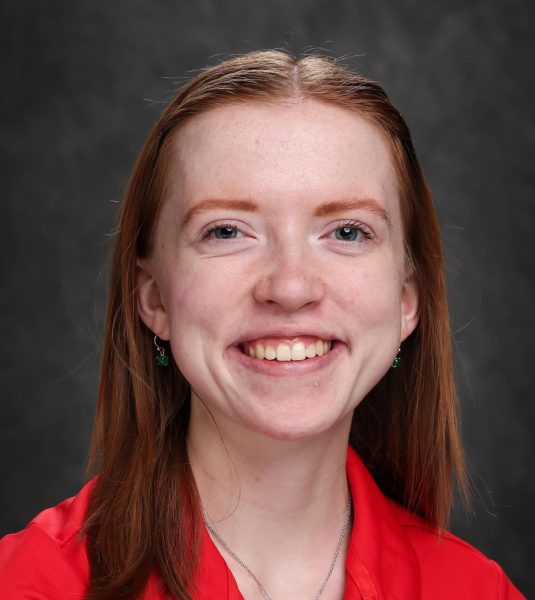The Associated Students of the University of Arizona, the university’s undergraduate student governing body, met on Oct. 27 to discuss the UA Academic Advising Counsel’s discussion on changing the grade replacement opportunity policy and “double dipping” for double majors.
The meeting was called to order at 7:08 p.m. and adjourned at 7:59 p.m. The senate gathered in the Madera Room of the Student Union Memorial Center and over Zoom.
According to ASUA’s post-meeting minutes, three senators were marked absent during roll call: Jack Haskins, senator for the College of Fine Arts, Lady Dorothy Elli, at-large senator and Sydney Mathis, senator for the College of Social and Behavioral Sciences.
Change in GRO and Double Major Policies
The UA Academic Advising Counsel met Monday, Oct. 25 to discuss changing grade replacement opportunity policies as well as credit requirements for students seeking a double major.
Currently, the GRO policy states undergraduate students have the ability to repeat a course that they received a C, D or E in to replace their previous grade. This can only be used for up to three courses and the new grade will be the only one used in the student’s GPA calculation.
The policy change would either establish a limit on the number of credits that can be used for GRO or change the number of courses students can use GRO.
The committee is also reviewing an initiative to raise the credit requirements for double majors and prevent the overlap of general education credits for double majors, according to Louise Lalescu, senator for the College of Science.
“Double dipping” courses for degree completion is up to a respective college’s discretion. For general education courses, up to nine units can be used to satisfy both a general education requirement and a major, pre-major or minor.
“The one thing I was concerned about is the unit or course cap because in majors like data science or engineering you take classes that are four units not two or three, so that’s not fair to students because you can do less with GRO,” Lalescu said.
Swathi Ramkumar, senator for the College of Engineering, expressed concerns about this change in policy, especially regarding its effects on science, technology, engineering and math majors.
“There’s a lot of credit requirements in certain colleges, especially with STEM majors, and when it comes to double dipping of courses, I think it could be dangerous to not allow that,” Ramkumar said. “I feel like we could lose a lot of student retention if we don’t recognize that they’re learning the same material.”
The senate discussed that this may make the school look more competitive because it requires more effort to earn a dual degree, but at what cost?
“I signed up to go to this school to get this degree, so what’s the point?” Lalescu said.
Senate Initiative: Possible 24-Hour Community Study Space
The senate discussed providing a 24-hour community study space as their senate initiative at the meeting.
The UA Main Library is no longer open to students 24 hours a day due to budget cuts during COVID-19, and it has become problematic for students who need a place to study late at night. The senate wants to either help provide funding for the library to resume full operating hours or create a study space open to students at all times.
Multiple senators reported that their peers have complained to them about not being able to stay at the library past midnight.
Lauren Heath, senator for the College of Architecture, Planning and Landscape Architecture, said, “If we could either allocate money to help figure out the library situation or establish a space that is going to stay open 24-hours that would be really cool.”
Developing a safe, on-campus space for students would be an alternative to changing the library’s hours back to 24/7, but “a space to provide all of the equipment would require a pretty big budget,” Lalescu said.
The senate will meet the library advising committee on Friday, Oct. 29 at 12:30 p.m. to further discuss the problem and possible resolutions moving forward.
Four New Senators Hired
Four new senators will join ASUA next week. The new members include Abby Hauser from the College of Humanities, Anne Zlatow, a graduate student in the College of Veterinary Medicine, Ziana Collins from the College of Pharmacy and Edda Anderson from the College of Public Health.
According to Ally Devereux, ASUA executive vice president, these new hires reflect a move to try and include the representation of more colleges in ASUA. Efforts are being made to also fill positions in the College of Medicine, College of Optical Sciences, the College of Agriculture and a few small technology based colleges. Historically, some of these smaller colleges have not been represented in ASUA, but Devereux hopes to change that this year.
“It’s really rare that those seats are filled, usually, but I’m gonna make a really big effort to fill them this year,” Devereux said.
Notable Mentions
Noah Vega, ASUA student body president, said that the university’s administration is considering providing free access to news outlets for all students. He said the New York Times’ sales team has already met with the administration, but they’re looking to get another publication too, according to Vega.
“I get most of my news from Twitter because I’m so busy all the time, so we’re trying to figure out how to increase access to information … . I definitely want to see it pushed forward. All of the administrators I’ve talked to seem really excited about it,” Vega said.
Students currently have access to the Wall Street Journal for free which was financed by a donation to the Eller College of Management this year.
Follow Jane Florance and Sam Parker on Twitter










